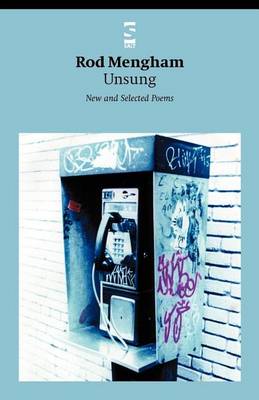Salt Modern Poets
1 total work
"Sculpture is a part of the space around it." This statement by Katarzyna Kobro reflects Mengham's sense of how he wants the poetic text to relate to the languages that surround it. He has a set of ongoing preoccupations which are catalyzed by pronounced occasions, private and public. Ideally each text would be both univocal and multivocal, expressive and typical; since Mengham relies on a lot on circumstance, there is a great deal of personal input into the poems, but this is not meant to contribute primarily to a representation of the self, more towards a presentation of work for the reader to do. What kind of work? Certain kinds of semantic and syntactical derangement which Mengham hopes has a signature without constituting mere routines. He tries to catch the material in a state that remembers what it was like just prior to organization. And then in the process of composition there is an attempt to control this prehistoric material with particular attention to overall movement, phrasing, consonance and figure (which is to say, idea-rhymes). The distance between starting out and finishing is most obvious in the prose poems where you can see the agenda, perhaps even a theme or set of themes, that the text essays, as well as the curve it enters as a rhythm and an acoustic repertoire and conceptual and visual variations take over. It is less obvious but actually more extreme in the other poems.
